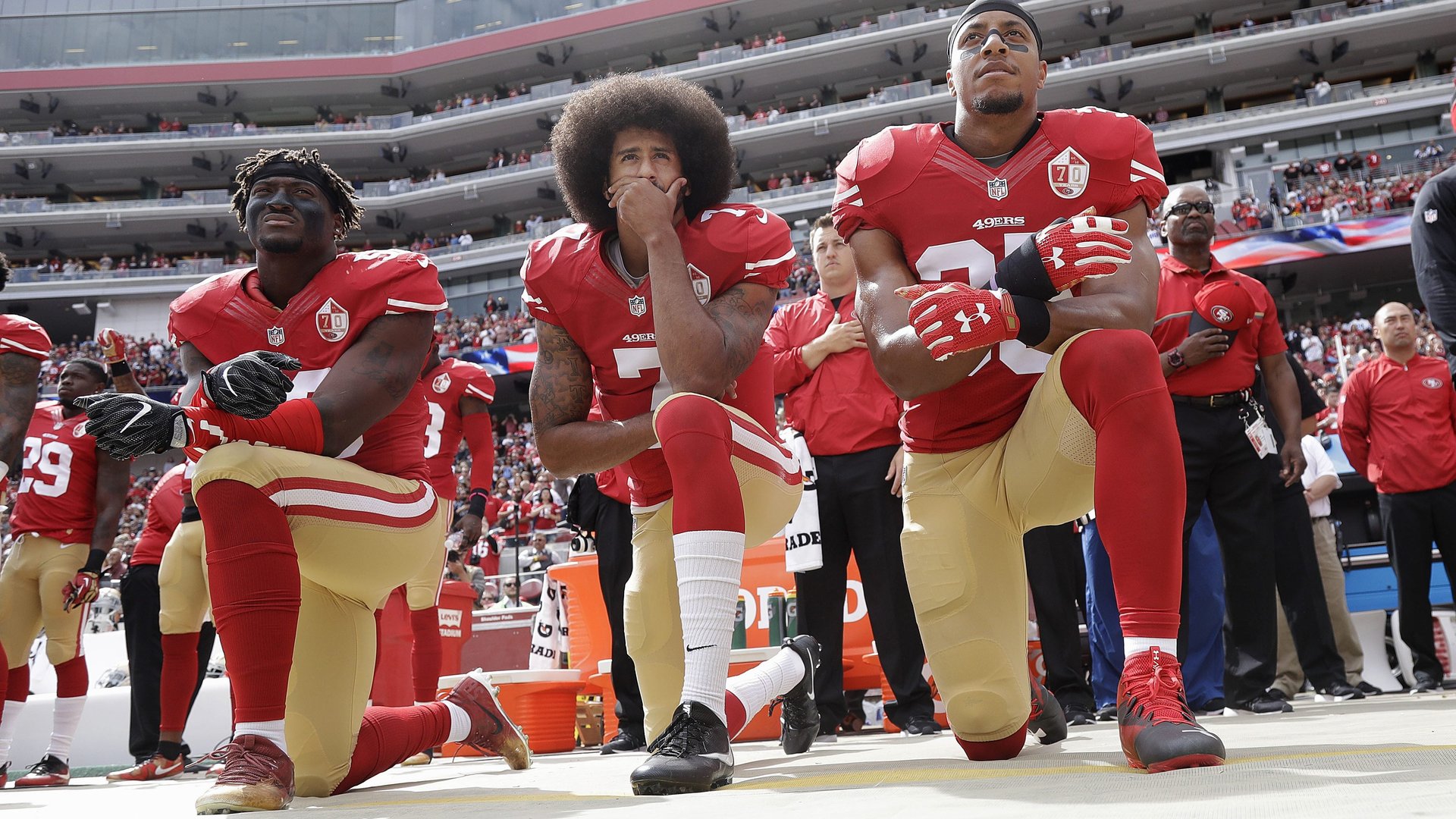Unless you’re a superstar, it’s better to keep your mouth shut in the workplace (even in football)
Last year, NFL quarterback Colin Kaepernick drew headlines for his refusal to stand for the national anthem, a protest against racial injustice in the US.


Last year, NFL quarterback Colin Kaepernick drew headlines for his refusal to stand for the national anthem, a protest against racial injustice in the US.
The American football player is now a free agent after spending six years with the San Francisco 49ers, including one where Kaepernick led them to the Super Bowl.
Many observers are saying his continued unemployment is a direct result of his protest, which rankled many conservative football fans. In the video below, the blogger calls him “Colin Kaeper-dick” for not standing during Military Appreciation Night.
But Kaepernick’s performances have also declined in that time, and he’s struggled to hold on to his starting position as a quarterback. With Kaepernick’s skills eroding, it’s much easier for NFL owners and general managers to pass on signing him, particularly if his salary demands don’t reflect his value.
As Joe Thomas, a tackle of the Cleveland Browns, suggests, teams have little appetite for marginal players who call attention to themselves:
Kaepernick’s plight exposes the double standard of professional sports, and, in truth, all private employment: A boss will tolerate deviant behavior only to the extent that it’s eclipsed by performance.
Superstars, whether they’re quarterbacks, coders, or salespeople, have a longer leash. Their eccentricities will be overlooked and political statements tolerated, so long as they continue to perform at a high level and their behavior doesn’t jeopardize the business.
For the rest of us, speaking out is risky. In the US, private employees have few safeguards when they spark out and, in most states, they can be dismissed if their political speech violated company policies, according to Workplace Fairness, an website that guides workers about their rights.
Unless their contracts protect them (or they work in a few states and cities), workers can be disciplined or fired for maintaining political blogs, wearing campaign clothing, or soliciting donations. And employers can require their workers to attend political rallies for their chosen candidates.
If Kaepernick was still playing like a star, it’s likely that at least one team would swallow hard, sign him, and trust fans would get on board once the wins started piling up. But with many more free-agent quarterbacks than NFL jobs, it’s far simpler for risk-averse teams to sign a bland backup rather than a political lightning rod.